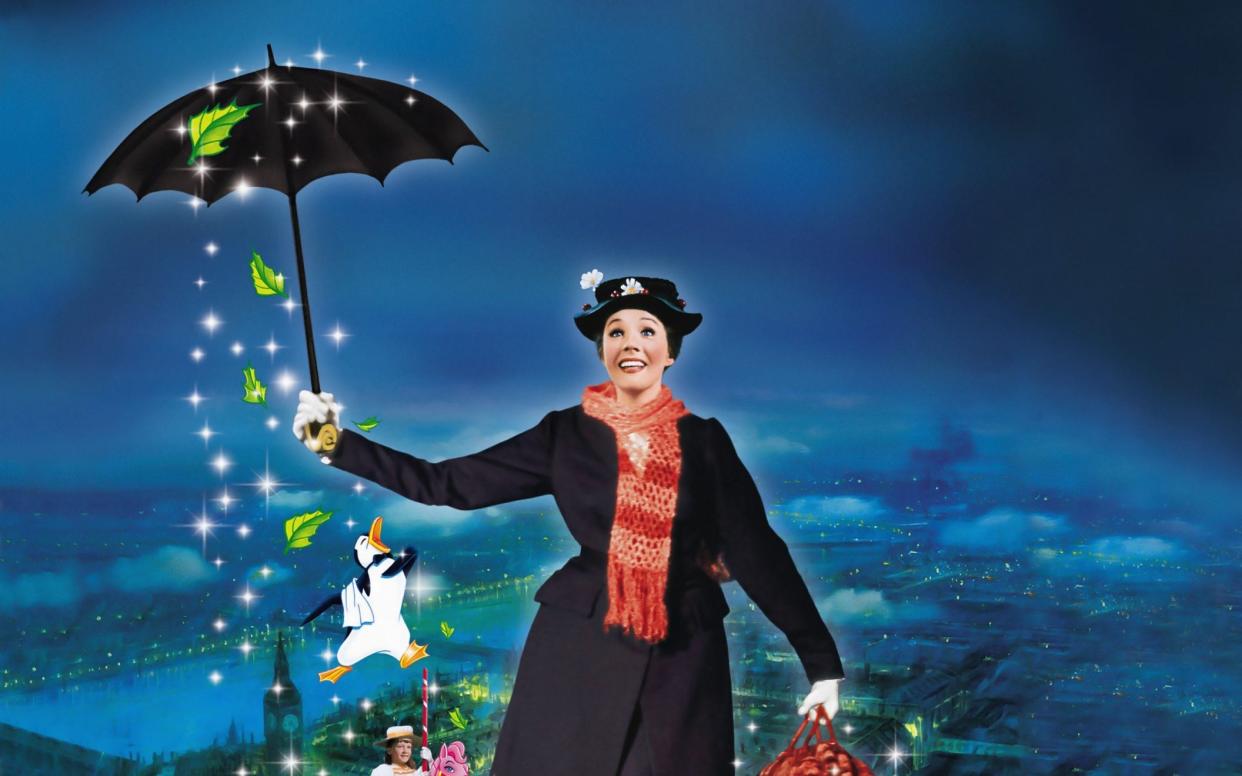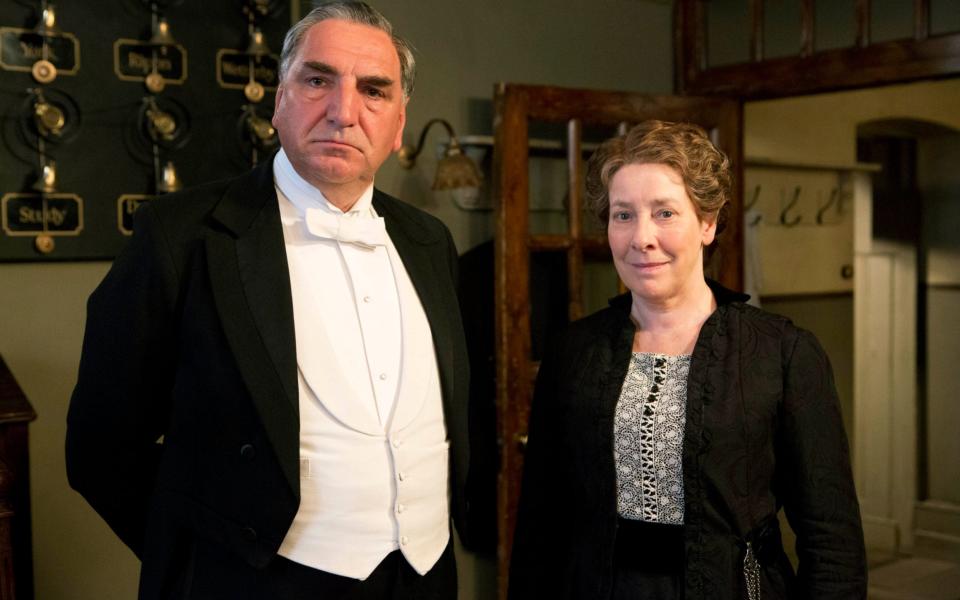The return of the governess, the lady's maid and the butler

Of all the curious comebacks prompted by Covid – sourdough bread-baking, pan banging (for the NHS), staycations and the expandable waistband – the return of the governess might be one of the most surprising, at least for the average Brit.
Yet according to Anita Rogers, founder and CEO of domestic staffing agency British American Household Staffing (BAHS), all any ultra high net worth family wants for Christmas this year is their very own stern-faced piece of Victoriana.
“We’ve always had a few governesses on our books,” says Rogers, whose 4,000-strong client base spans the globe (the majority of her clients are in the US, with around a fifth in Europe, mainly the UK, Switzerland and Monaco). “But then Covid happened, and suddenly everybody wants a governess, which makes sense when you think about the gaps in schooling and structure so many kids have faced over the past few months.”
If you’re conjuring up images of mature matrons in bustles, however, think again. The idea may come straight from the pages of Mary Poppins, “But 99 per cent of the time what we’re being asked for is not so much a traditional governess as a combined teacher and nanny, only with that old-school formality and maturity, and the accolades: the schooling in Switzerland or England, the previous employment in formal homes, and the emphasis on manners and etiquette,” says Rogers.
But there’s far more to being a governess that that. “Many have either a degree in education or multiple teaching certificates in specific subjects, such as music, a language, and teaching English,” says Rogers. “Some families who hire governesses are not first-language English speakers. A governess must be able to teach written and spoken English at a high level, both for the native English-speaking children under their care as well as non-native speakers.”
She continues: “Governesses typically look after school-age, pre-teen and teenage ranges. A governess is occasionally hired for an infant so the infant can get a head start, especially with a second language – this is not typical, though.”
So how on earth does one distinguish between nanny-teachers and the genuine article? “Let’s just say that governesses have an air about them,” says Rogers. That air comes with a hefty price tag: an estimated $150,000 a year (plus health insurance). But BAHS’s one-percentile clients are happy to pay that, alongside $200-400,000 a year for an estate manager, $120-200,000 for a personal assistant or house manager, $90-105,000 for one of three or four revolving nannies, $130-180,000 for a private chef (well worth the money, given “mum might want a fat-free diet, dad is on Paleo and the kids are gluten-free”) and $110-150,000 for their own personal Jeeves.
Anything for a quiet, fully staffed life, and impeccably bred offspring. Oh, and should you wish to hire a light aircraft or a yacht – “hugely in demand right now because people can escape the pandemic that way” – BAHS can organise that too. Just press 2 when the Julie Andrews soundalike asks you to, on the agency helpline.
After more than a decade’s experience in pairing families with household staff, Rogers’ exclusive agency has earned a reputation for being able to meet every need and handle any situation that may arise in the super-wealthy working household. BAHS will deal with households “where the parents want almost no communication with the multiple nannies and staff, which I understand, actually. Because if you have 10 housekeepers, your whole day could be spent asking them all how they all are,” she says.

But the biggest sign of a greater formality in Covid times “has been the quantity of butler orders we’re getting these days, alongside an increased demand for lady’s maids”. After an infamous New York Times profile in which Goop queen Gwyneth Paltrow clarified the differences between a butler and a house manager, I’m aware that butlers are still very much a thing.
But ‘lady’s maids’? Whatever they do, I want one in my life. “Back in the Marriage of Figaro day, lady’s maids would do everything, from putting a woman’s bra on to brushing her hair, but they wouldn’t be expected to do that these days,” says Rogers. “Today, they are well-spoken and educated and, crucially, very good laundresses. Because a lot of the women that we deal with will wear very expensive clothes that you can’t send to the dry cleaners, so lady’s maids will be specialists in that area, and be able to hem and sew.”
Butlers tend to have a greater array of tasks and talents. “They do everything from putting on the slippers to opening the door and flower arranging. Our butlers will often also be chefs and sommeliers, and double up as house managers.” These terms are so Downton Abbey, I’m amazed we’re still ‘allowed’ to use them. But some have been vetoed, Rogers reveals. “‘Lady’s maid’ is still OK, but you can’t say ‘maid’ any more. A maid is now an ‘executive housekeeper’.” Cleaner is out, too – “it’s a housekeeper” – as is cook and, of course, secretary: “It’s a ‘personal assistant’. But everything else is fine.”
There is also a strict hierarchy to adhere to within a fully staffed household. “Top of the pyramid is the estate manager or director of residences, then under him you’ll have a house manager/butler, then the governesses, then housekeepers, then the nannies and laundresses – they are all fairly equal.”
But there’s unspoken emotional hierarchy beyond that, “because nannies will often have mum and dad’s ear.” Despite the closer bonds between key staff members and what Rogers calls “the host family”, any blurring of the lines is cautioned against.
“The best nannies, housekeepers and butlers will know how important it is to become invisible. That doesn’t mean that you’re subservient, just that there are boundaries.”
A respect for those boundaries is one of the things BAHS is on the lookout for in the extensive interview and screening process their 6,000 jobseekers are forced to undergo, when everything from background to credit checks are conducted. “We’ve had nannies that we loved, but then they had a glass of wine with the parents,” she laments, “and you never do that – never. But sometimes it’s the parents themselves who blur the lines.”
I tell her about some of the top-tier LA nannies I’ve heard about, who are not allowed to kiss or cuddle their charges. “I have experienced that,” she nods, “and I don’t think it’s right. Children need love and connection – that’s so important. But, in the celebrity world, one sometimes comes across that ‘don’t bond with my child or make my child love you’ mentality, and that upsets us.”

The “over-scheduling” of children in a sector where money is no object can also be problematic, Rogers believes. “because a bit of creative play time can be good for a child”. BAHS has experts on hand for every talent a parent wishes to hone in their offspring, from art, music and painting tutors to “classes in future proofing.” Sorry – what? “Oh, that’s a big thing now. With artificial intelligence taking over certain jobs, parents are wanting to prepare their children for careers that are perhaps more arts-related, and jobs that artificial intelligence won’t be able to take over.”
So one-percenter families are now robot-proofing their kids? “It’s a request we’re hearing more and more, and, actually, I think it’s really wise. Having lived in San Francisco, I can see what the reality is, and it’s going to be horrific for so many peoples’ identities as AI takes over certain jobs.”
Should children themselves become overly anxious at the prospect of an invasion of the bots, BAHS can help there, too. “We’ve seen an increased demand for nannies and governesses with a background in child psychology,” says Rogers. “That’s very, very popular now. It’s about checking a child’s development every step of the way and making sure that they’re hitting all the milestones.”
How about at-home adult shrinks? “We’ve never had a request for those yet,” she says with a chuckle, “but if we do, I can guarantee that it’ll be from LA.”
Interestingly, given it’s usually the woman of the house who will contact BAHS, Rogers can’t remember a single time when a client has stipulated that a nanny shouldn’t be too attractive. “But I have had the opposite request: mums who have asked for a ‘pretty and elegant’ nanny for their son, so that he will grow up to have good taste in women.”
There is, of course, one character who could cater to every one of these extraordinary demands; a pretty and elegant hybrid who could take care of everything from governessing and house organisation to ‘future proofing’ and psychiatric support: Mary Poppins! Rogers frowns. “She would be very hard to place. There’s the strong character, which is problematic. She was always doing what she wanted, as opposed to what was asked of her. And as for taking the kids off to dance with chimney sweeps? That would be a complete no-no.”
Read more: Rise of the helicopter nanny as parents hire governesses for their teenagers


